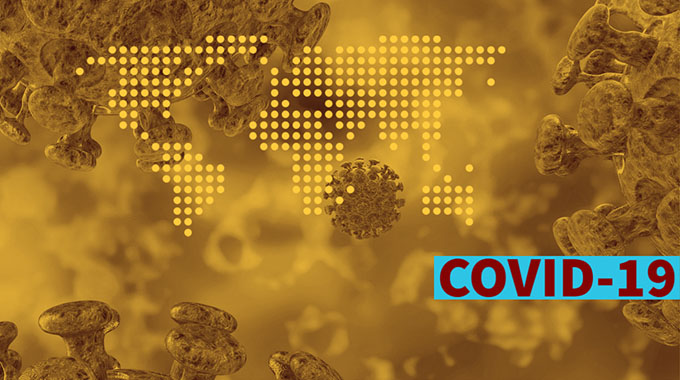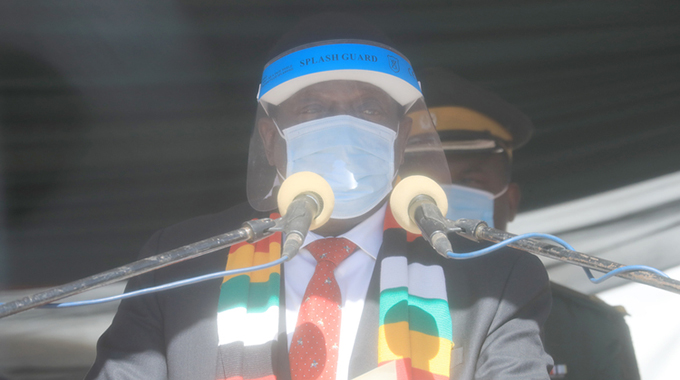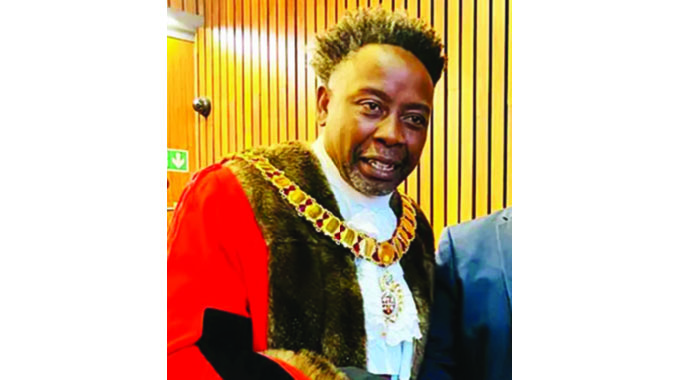Zimbabweans in UK to embrace new normal brought about by Covid-19

Dr Masimba Mavaza Correspondent
Diaspora is the most hard hit by Covid-19 on cultural changes. Being in the Diaspora, you yearn for something which unites you with home. The fabric which ties you with your roots. For the first time you feel proud to be you, to be Zimbabwean.
This is the time you do not worry about accent. You actually want your accent to be felt. It is in Diaspora that you realise that the Zimbabwean nose brigades are lost in their on world of confusion.
The first time you shake hands and ask ko mutupo ndiani. It is when you search yourself and display your culture, which makes you tick.
In the Diaspora, one understands that it is the best honour to be Mhofu Yemukono, Shava yava Hera Mutakura Soko Ziwewera This pride in your culture in humanity is now under threat.
COVID 19 has brought about extinction of the daily commute to transforming our relationship with food, Covid-19 is changing our world already.
This change is a heavy shock to Diasporans. They were about to be successful in adapting the English way of life then in the hands of victory their success is eroded by COVID 19, the unseen formidable enemy.
Like the spread of Tungundu which spread along the pastures of Zimbabwe and it was accompanied by mad cow and crowned by bird flue, our livestock perished around 1989.
Now once again in the same fashion the world is seeing the evil virus strung along the spine of 2020, as Covid-19 spread extremely quickly along the modern-day Silk Roads it closed the unseen but overly used air roads known as intercontinental flight paths.
The words of Arden from BBC resonates with the truth: “Although the coronavirus may not hit global health as catastrophically as the bubonic plague did in the 14th Century, this latest pandemic will certainly change the world.
A disease may be indiscriminate in who it infects – rich or poor – but the effects it wreaks are anything but equitable between disadvantaged or privileged members of society.”
International lockdown and the effective suspension of civic and commercial activity across entire countries has thrust up a mirror on how our economic, social and political systems operate and forced the beginnings of a global conversation on how they may need to change. Covid-19 has revealed the shaky foundations on which much of what we take for granted in the developed world is built, from the intricately interwoven nature of globalised supply chains and manufacturing infrastructure.
Previous plagues such as the Cholera and Typhoid or influenza pandemic of 19th century had huge ramifications for the nation afterwards. The aftermath of this coronavirus pandemic will also see myriad changes, from personal adjustments to global shifts.
Because of this virus, a lot of changes have taken place. We have changed our social behaviours and accepted the otherwise obscene behaviours.
What we valued most which makes us miss home was when we sit under a tree surrounding s pot of home brewed beer. We would share and drink with our unmasked mouth from the same pot. There was no fear of spreading diseases. It was viewed as pride and anti social to refuse to share the pot.
This system brought unity and it built an unseen bond which made it a strong society. This made Zimbabweans a loving nation as their humanity was founded on togetherness. Now with new laws to prevent the coronavirus, Zimbabweans mourn for their beloved culture which is being swept away by the unseen virus.
The greeting each other with elbows was viewed as an insult. Those who never touched hands with others were labelled societal snobbish outfits. Proud lunatics, John knows all and those who have lost their human fabric. If you are not married they will advise their children to run away from you. Now this same way of greeting, which brought shame is now the accepted norm.
How Covid-19 has changed our values. It’s likely that all of us experienced the imposition of lockdown as a shock to the system, whether it made us feel lonely or listless or anxious or driven to distraction by the family constantly under each other’s heels, or all of the above, all at the same time. As individuals, we have had to make changes – both big and small – to our everyday lives.
But while physically distanced, Diasporans have learnt to tell a visitor in his face that he is not welcome he might bring in Covid-19. Long back it was a taboo to chase someone away. Covid-19 has given many the courage to chase away relatives. While funerals and weddings have been squeezed in Zoom, attending a wedding has been replaced by Zoom. In many cases there will be no physical visits. This is a social fabric which has been removed by Covid-19.
Lockdown has tested people’s creativity – particularly that of parents to keep their children busy, While being enormously disruptive and painful, crises also invariably nurture the emergence of great common purpose, solidarity, creativity, and improvisation.
Again Covid-19 has removed manners which had defined a person. Now you can eat while standing. You can greet you mum or dad with a closed fit. Ww used to be ridiculed for talking with your mouth shut. Now you will be penalised for talking without covering your mouth. The Covid-19 effects have rippled through society.
Many of us have more time on our hands these days, and this has unlocked an inner creativity and resourcefulness that can be shared widely online. This has manifested itself in different ways. Many of us are now taking a lot more time and consideration over cooking. This was a taboo to see husbands cooking. Now with Covid-19 we are seeing the whole society being whipped into a new era.
Husbands now engage in actual cooking for the family– carefully choosing a recipe, chopping and stirring ingredients, grinding spices – taking delight in the process of preparing a meal. They now are learning to be baby sitters and going through a tough school of patience being taught by the children.
On an even more fundamental level, others have been experimenting with creating and maintaining old dishes and many more. Making muputyu a cultural dough made of maize meal and little sugar. Baked like a cake.
This sweet dough can perform a miraculous transformation for your breakfast taking nothing more than basic flour and water and turning it into a risen loaf in the oven.
A lot more people are also turning their hand to growing some fruit and vegetables for themselves in the back garden, or even just a few herbs in a small box on an urban windowsill.
The way people rely on their masks it is not a surprise as faces are no longer important covered in the mask. Our beloved ladies are also saving money to buy lipstick. Values have changed you need to see beauty through a mask.
This indeed will be a big task. Smiles are no longer pointers of happiness. You will never in anyway judge beauty from the face, it will be from the mask.
Facial expressions will never be seen through your face. You can never gauge the mood of any one until they smile.
Many small things which we hold dear in our identity have been wiped away by the virus.
Indeed, our social fabric is being trashed by Covid-19 before our own eyes. [email protected]







Comments